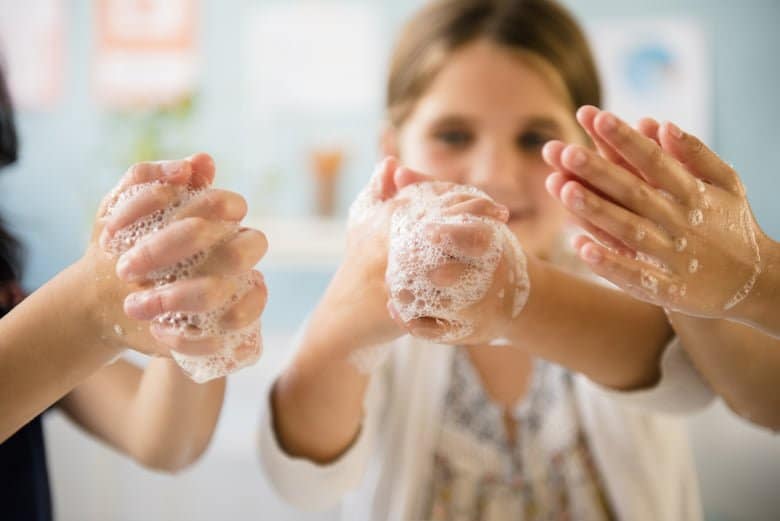(updated on November, 8)
Coronavirus has taken over the news and our lives. We are currently facing a pandemic of unforeseen scale spreading across the whole world. As of Sunday, 8 November 2020, there are
27,668
confirmed cases of COVID-19 in Australia, among them 907 deaths. Here, experts weigh in on the most frequently asked coronavirus questions and what you can do to best protect yourself and your loved ones.
+ + + For anyone with immediate concerns: If you are sick and think you might have COVID-19, check your symptoms using healthdirect’s Coronavirus (COVID-19) Symptom Checker. You can also call the National Coronavirus Helpline 1800 020 080 for information and advice. For general information on COVID-19 please visit the Department of Health’s website. + + +
Coronaviruses are a large family of viruses common to many species of animals, such as camels, cattle, cats and bats. They can be spread from animals to humans. Coronaviruses cause illness in humans ranging from the common cold to more severe respiratory (lung) diseases such as Middle East Respiratory Syndrome (MERS) and Severe Acute Respiratory Syndrome (SARS).
The current coronavirus—also referred to as a novel (new) coronavirus, or SARS-CoV-2—was first detected in 2019, in Wuhan City in the Hubei Province of China. It has since been detected in travelers, as well as confirmed in people without known exposure to the region or other known patients. The name of the illness caused by SARS-CoV-2 is called COVID-19, short for “coronavirus disease 2019.”
How is coronavirus transmitted?
Human coronaviruses are most commonly spread from an infected person through:
- respiratory droplets generated when you cough or sneeze.
- close, prolonged personal contact, such as touching or shaking hands.
- touching something with the virus on it, then touching your mouth, nose or eyes before washing your hands.
What are the symptoms?
The main symptoms associated with coronavirus include:
- fever
- coughing
- sore throat
- shortness of breath
What are the symptoms in children specifically?
Limited reports of children with COVID-19 have described mild, cold-like symptoms, such as fever, runny nose and cough. A couple of children exhibited gastrointestinal symptoms (vomiting and diarrhea). Furthermore, children tend to have skin changes or rashes. Although severe complications (acute respiratory distress syndrome, septic shock) have been reported, they appear to be uncommon.
If you’re pregnant or breastfeeding: Pregnant women do not appear more likely to be seriously affected. Peer-reviewed research on infants born to mothers with COVID-19 showed that none of the children tested positive for the virus. Additionally, the virus was not detected in samples of amniotic fluid or breast milk.
Who is most at risk?
The risks are highest in the following communities:
- People who are close contacts of someone who has been diagnosed with COVID-19 are at elevated risk.
- People aged 70 and over.
- Healthcare workers caring for patients with COVID-19 are at elevated risk of exposure.
- The immunocompromised—like people in retirement homes, the elderly, cancer, diabetes, HIV or COPD/asthma patients, etc.—have a higher risk.
- Travellers returning from affected international locations where community spread has occurred.
- Pregnant women experience immunologic and physiologic changes which might make them more susceptible to viral respiratory infections, including COVID-19.
What precautions should I take?
To protect yourself and others you must:
- practise good hygiene
- practise physical distancing
- follow the limits for public gatherings
- understand how to isolate if you need to
The best approach is to wash hands with soap or sanitizer for 20 seconds especially,
- when you get to work or arrive home,
- after you blow your nose, and
- cough or sneeze before you eat or handle food.
What should I do if I think my child or I have been exposed to coronavirus?
If you are sick and think you might have COVID-19, check your symptoms using healthdirect’s Coronavirus (COVID-19) Symptom Checker and follow the instructions given there. You can also call the National Coronavirus Helpline 1800 020 080 for information and advice about COVID-19.
Is there a vaccine?
There is no vaccine for coronavirus (COVID-19) yet, but it’s likely that we’ll get one soon.
Note: You will find further helpful information in our “How to Handle Covid” guide.
Please note: The article above was prepared to the best of the author’s ability based on available information. However, it is not updated on a daily basis and may not apply to your specific situation.
